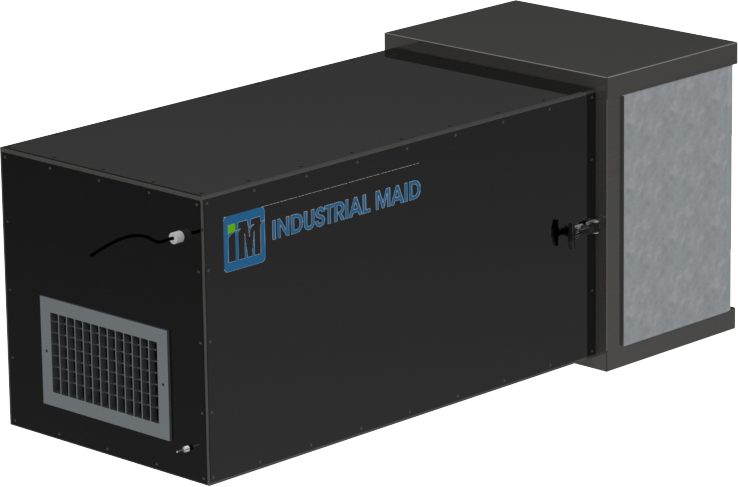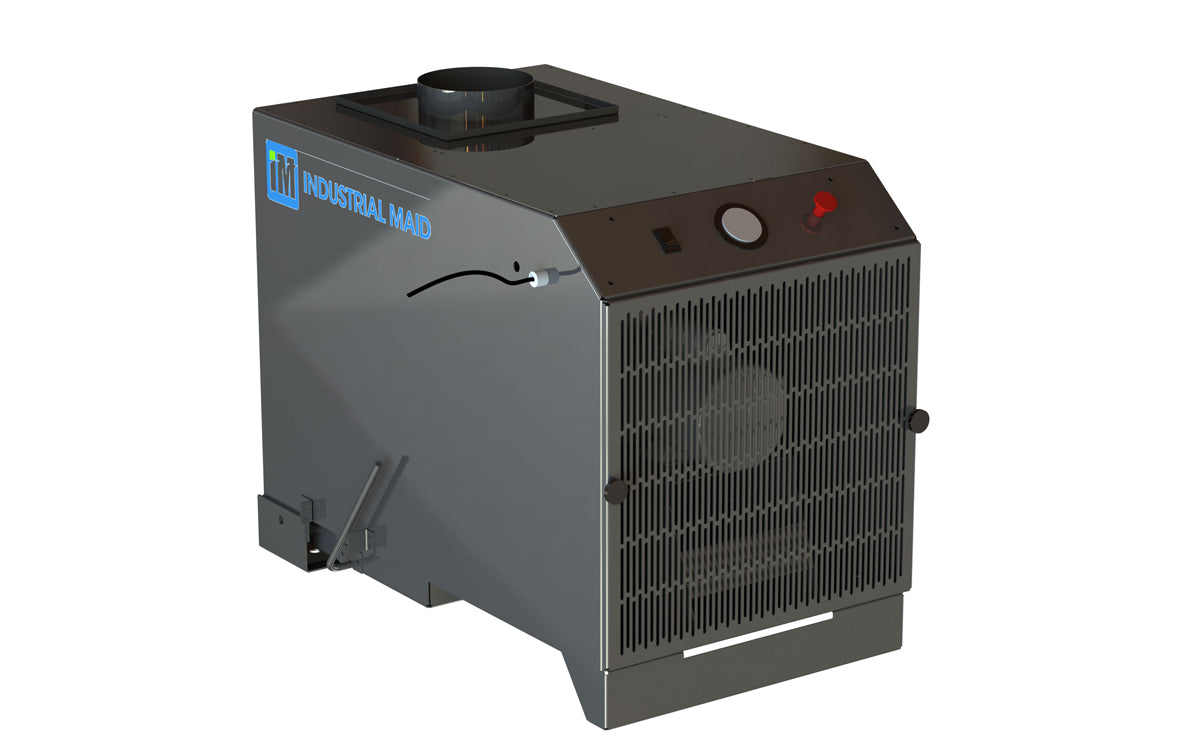Filtering the air from pollutants and debris
If you’re running a machine shop or processes that produce either solid or powder into the air, a proper dust collection system becomes important to the cleanliness of your shop and the health of your employees. Dust collectors are used to enhance the quality of air released from industrial and commercial processes by collecting dust and impurities from the air. They can also capture solids from gases and other fumes prior to them being ventilated to the outdoors—also an important task when dealing with air quality restrictions.
Dust Collection can be done in a variety of ways, using a portable or stationary system. Typical dust collector systems include a blower, dust filter, a filter cleaning system and a dust receptacle or removal system. The size of your shop, location and the processes being completed will determine the type, number and size of industrial dust collection units you will need.
At Industrial Maid, we specialize in dry dust collection and can help you quickly determine what solutions are best for your business.
Dangers of Dust in the Workplace
While dust is something we are all very used to—it can also be dangerous, particularly if you are exposed to large amounts day after day. Typical professions that encounter risks from dust exposure include construction or woodworking shops, agriculture and farming shops, bakeries and mills, machine shops, body shops, and mining and quarry outfits.
The most common risks encountered by dust are health-related, but there is also a risk of explosion or combustion from dust released into the air instantaneously. Dust can form in larger pieces or smaller ones—invisible to the naked eye, which raises the risk of combustion from particle interaction.
Dust illnesses include; eye, nose, and skin irritation, asthma, silicosis, asbestosis, mesothelioma, and lung cancer. The scary part of dust exposure is it can take years to see the effects or for a person to develop any symptoms.
The government has instituted many regulations and restrictions on minimizing the amount of dust in the air. These restrictions typically require not only proper clothing and respirators, if needed, but air filtration or ventilation systems to be compliant—of course, this largely depends on the business and amount of dust-producing processes completed daily.
Rather than take a chance with any dry dust hazards, put the appropriate precautions in place to contain, minimize, and eliminate the risk—for you and your employees.
Learn more about combustible dust hazards by reading OSHA’s Fact Sheet.





